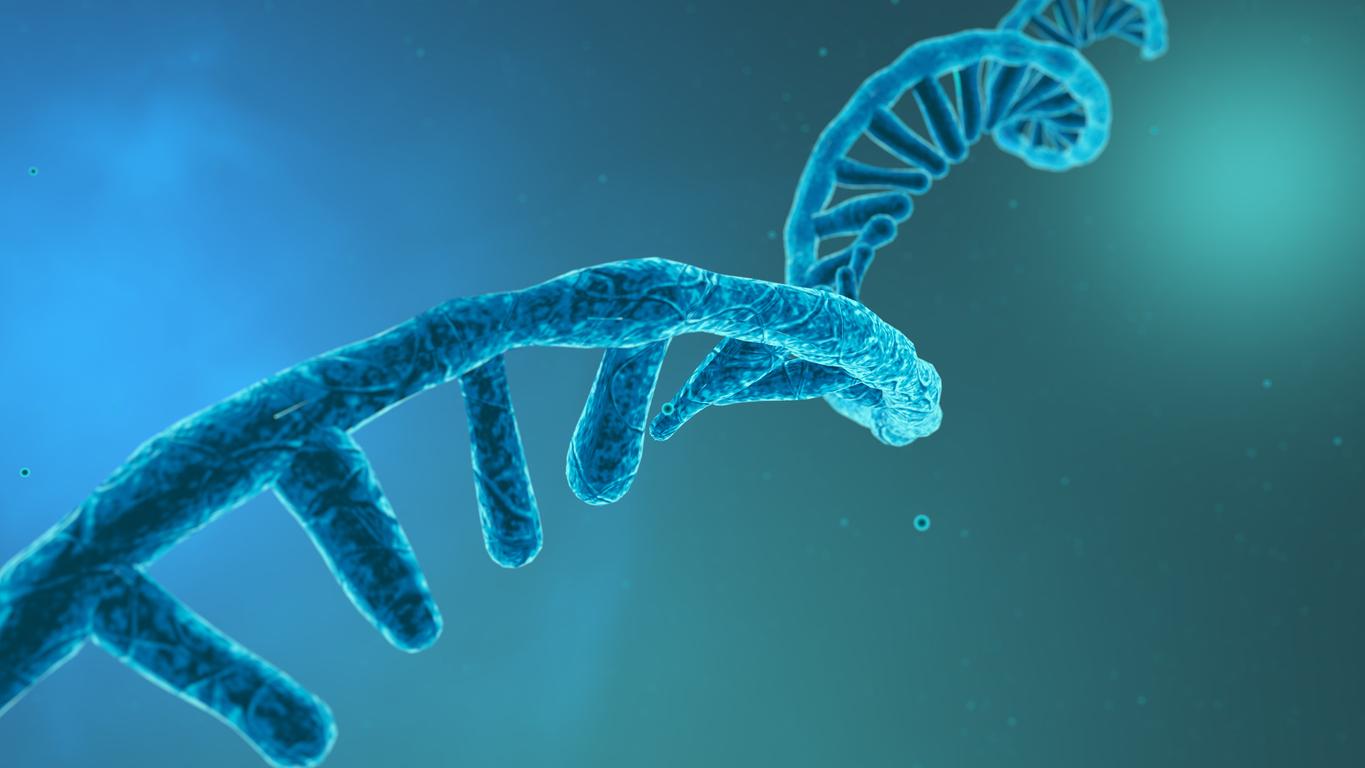A molecule, present in brain cells, influences the level of hypocretin, a neurotransmitter involved in sleep disorders.

- Daytime sleepiness is an unwanted and sometimes uncontrollable need to sleep during the day.
- People with a genetic variation of miR-137 have a higher risk of experiencing daytime sleepiness.
- Hypocretin is believed to play a role in depression, attention deficit disorder, and other mental disorders.
Concentration difficulties, lack of vigilance, weight gain, mood disorders: the consequences of a lack of sleep, or poor quality nights, are multiple. Several factors can explain a sleep disorder. Recently, researchers from the University of Copenhagen and the University of Aalborg (Denmark) identified the role of a small molecule present in brain cells. Called microRNA-137 (miR-137), it would have an impact on the levels of hypocretin, a neurotransmitter, in particular responsible for our circadian cycles. It makes us feel tired at night, and awake during the day.
A microRNA involved in the regulation of hypocretin
In the specialist journal PNAS, Birgitte Kornum, associate professor of neuroscience and brain specialist, and her team have studied the links between this molecule and the neurotransmitter. They performed tests on mice, zebrafish and human cells. “MiR-137 helps regulate hypocretin. To have normal sleep, you need to have the right amount of hypocretin in the brain at the right time, and miR-137 helps with that.says Brigitte Kornum. Although MiR-137 is also found in other parts of the body, it is particularly present in the brain.“With her team, she discovered that mutations of this microRNA cause daytime sleepiness, by disrupting the regulation of hypocretin.
Hypocretin: a central action on sleep
The neurotransmitter can have different consequences on sleep: it increases the risk of insomnia, the fact of not sleeping at night, but also that of narcolepsy, a decrease in daytime awakening. “People with insomnia may have too much hypocretin in the brain, while people with narcolepsy have too little.”, explain the researchers. In the latter, it is common for the stages of sleep to be disturbed. However, hypocretin is also involved in the order of the phases of sleep: falling asleep, light sleep, deep sleep and paradoxical sleep. “This order is vital for the quality of our sleep.say the authors.
Links to the immune system?
For the authors of this study, hypocretin could be deregulated by other factors, including the immune system. “When you are sick, you often feel tired, reminds Brigitte Kornum. And when you have a fever and the immune system is working hard, you often sleep poorly. So we know that something is happening at the level of hypocretin when the body is fighting a viral infection and we are trying to understand this process.” This study enabled them to identify a substance linked to the immune system, IL-13: it has effects on hypocretin. According to them, IL-13 affects miR-137, and therefore also the level of hypocretin in the body. They do not yet know the exact links between these different molecules, but they are currently doing research to identify them.


















